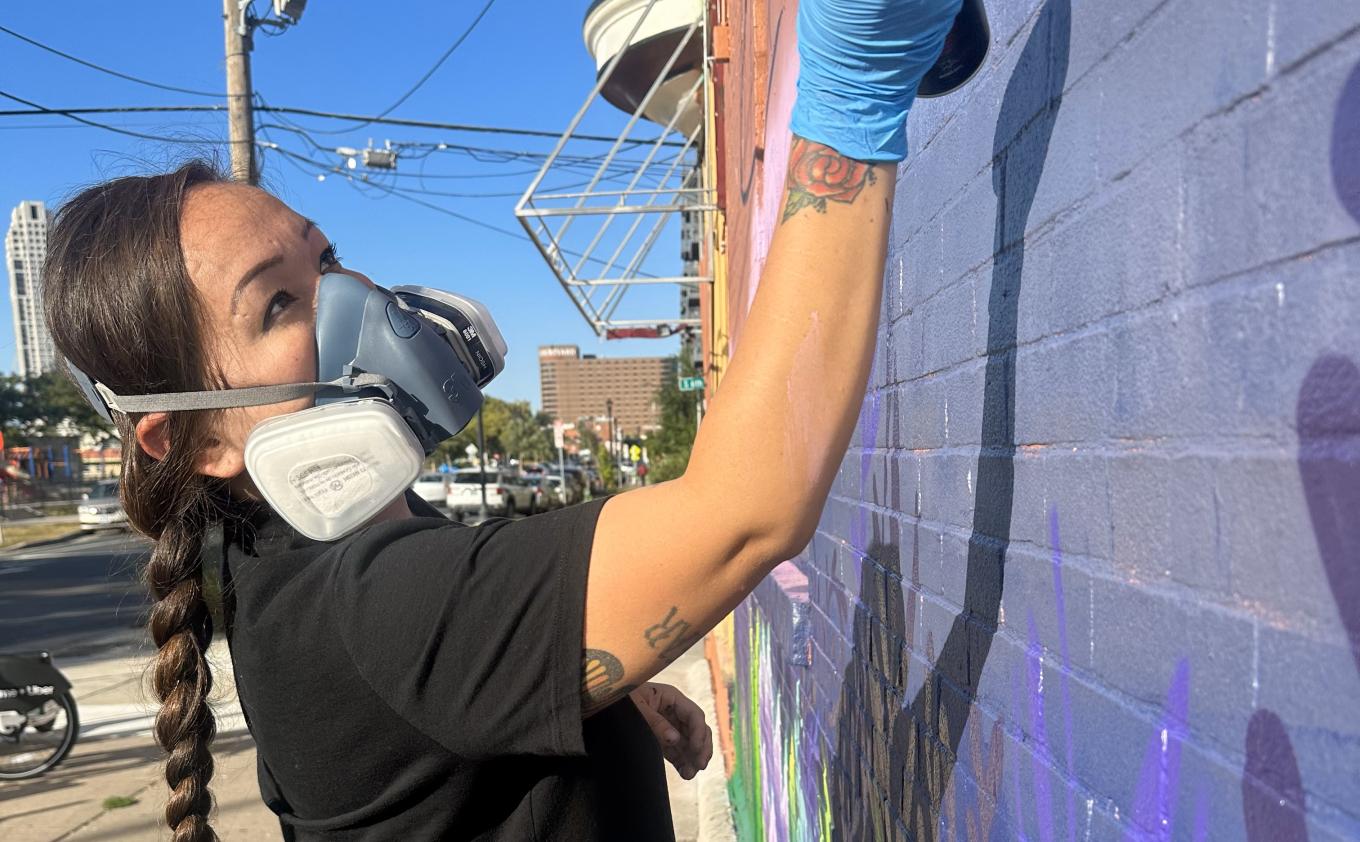Events
Art as a Form of Resistance Mural Event

Local Artist Thomasina Top Bear is going to create a 5’x5’ community-engaged polytab mural in our very own Peters Hall!
This design will be created by Top Bear using the themes Equity, Community of Belonging, Integrity, Well-Being and Balance, Growth and Learning, Inclusivity and Innovation.
How can I participate?
Next Wednesday, 25 members of the SSW community will each color a piece of a mural that will be in the hallway in Peters Hall.
Each participant will receive a 1’x1’ polytab square of the mural to paint with written instructions and assistance from the artist to guide everyone through the process. Thomasina Top Bear will then assemble the individual pieces like a puzzle and do small touch-ups to create a larger mural.
Please note: we have no more space available for participants!! However, we enthusiastically encourage all members of the SSW to stop by the Peters Hall atrium to witness the construction of our mural. Please be mindful of the painting in process, and pass through the space carefully. If you need assistance, there will be staff members on hand to help you.
Where: Peters Hall Atrium
When: 2:45 pm - 5 pm
Photographs taken at the event may be used in University of Minnesota print and online publications, promotions, or shared with the CEHD community.
The University of Minnesota shall provide equal access to and opportunity in its programs, facilities, and employment without regard to race, color, creed, religion, national origin, gender, age, marital status, familial status, disability, public assistance status, membership or activity in a local commission created for the purpose of dealing with discrimination, veteran status, sexual orientation, gender identity, or gender expression. All are welcome.
The University of Minnesota campuses were built on the traditional homelands of the Dakota and Ojibwe, and scores of other Indigenous peoples who have walked on these lands from time immemorial. It is important to acknowledge the peoples on whose land we live, learn, and work as we seek to improve and strengthen our relations with our tribal nations. We also acknowledge that words are not enough. We must ensure that our institution provides support, resources, and programs that increase access to all aspects of higher education for our American Indian students, staff, faculty, and community members.